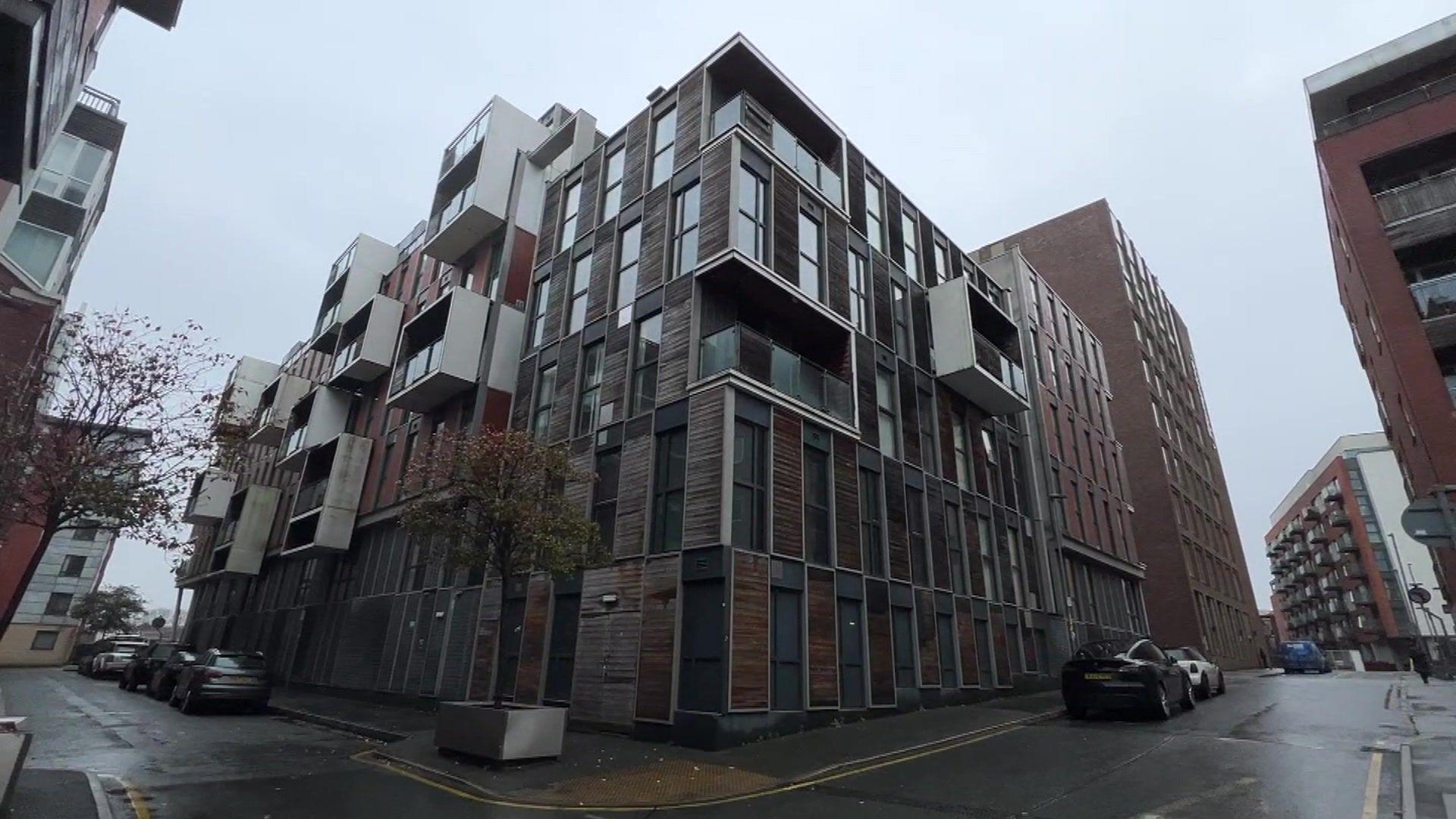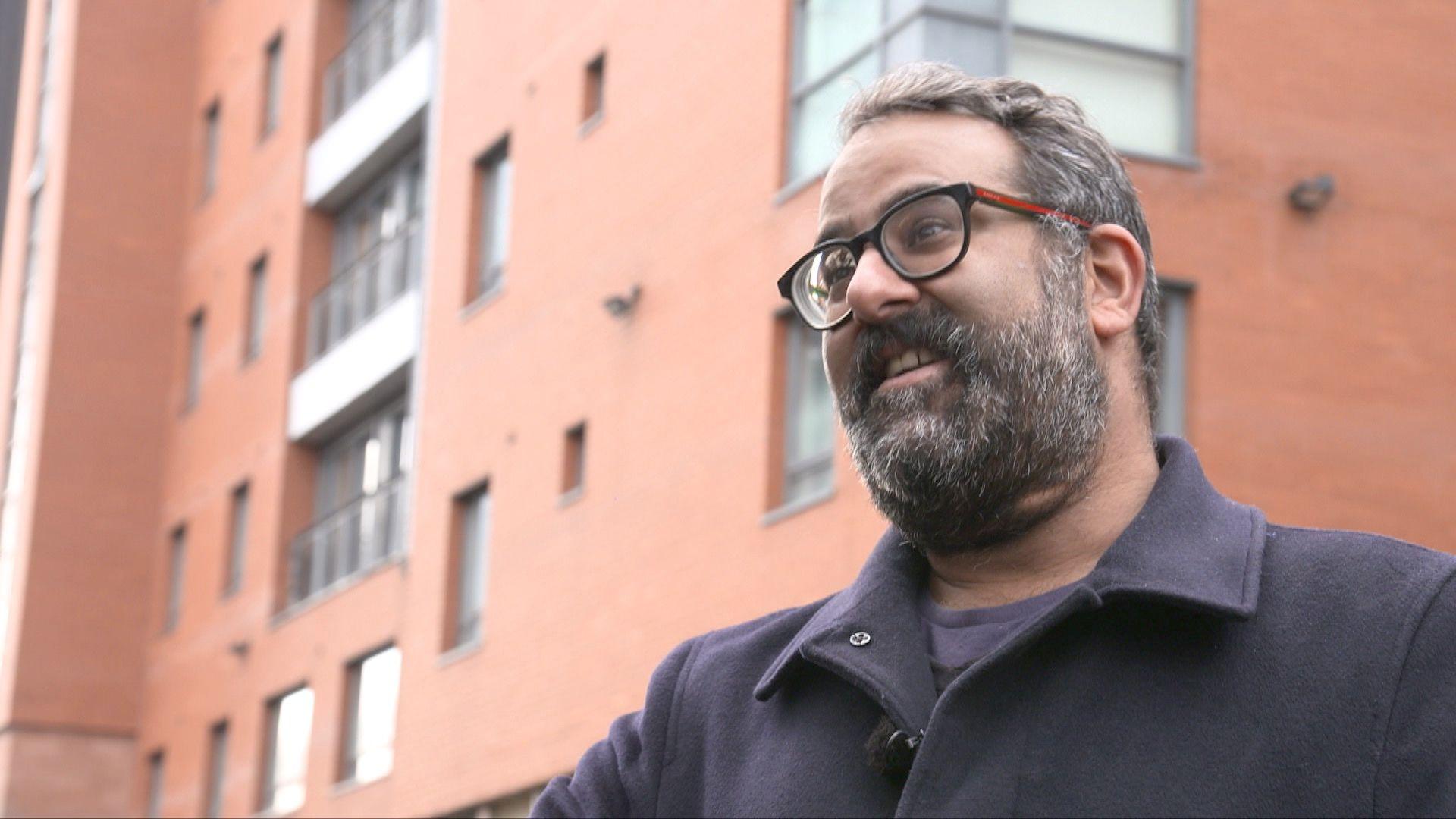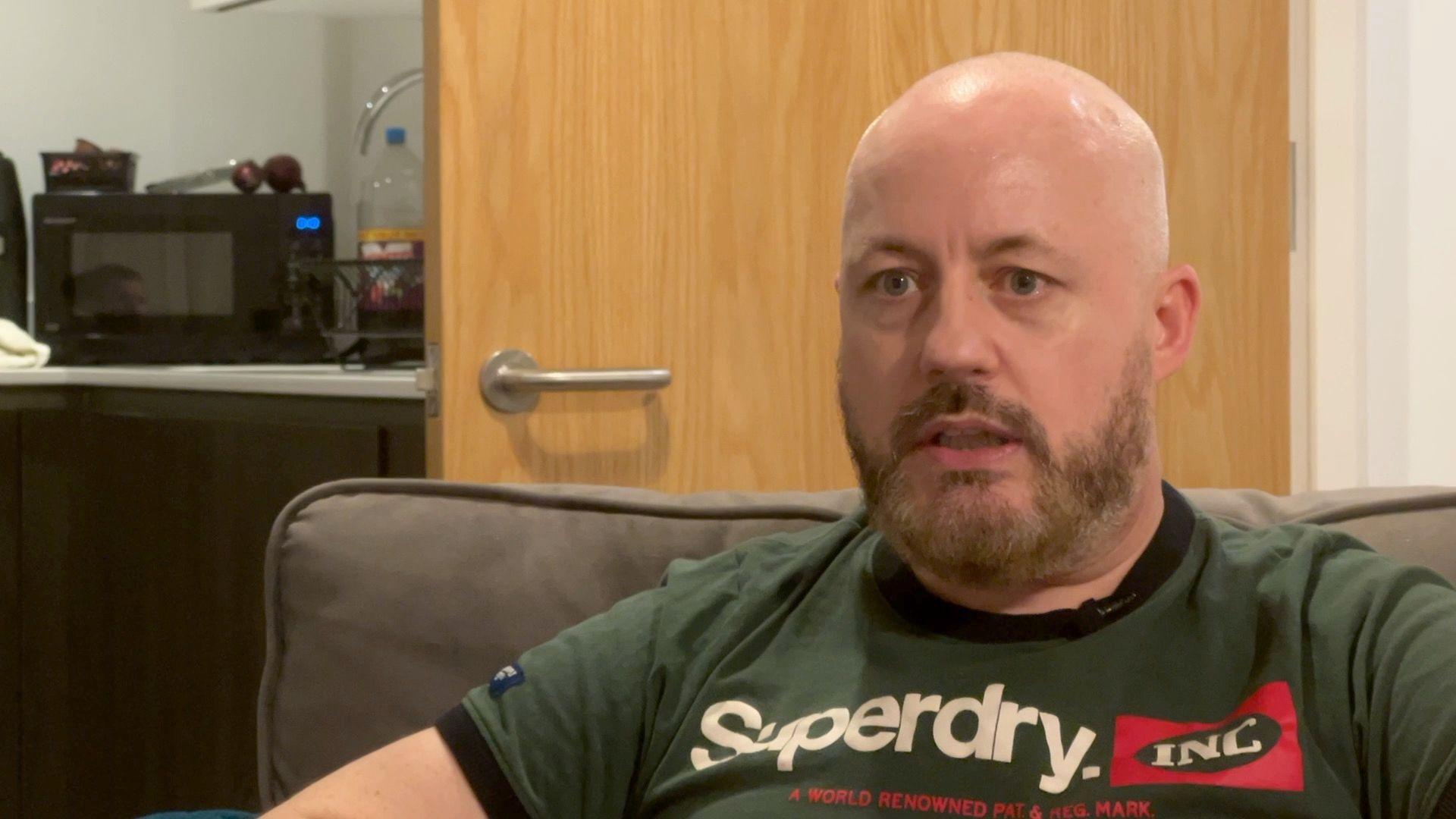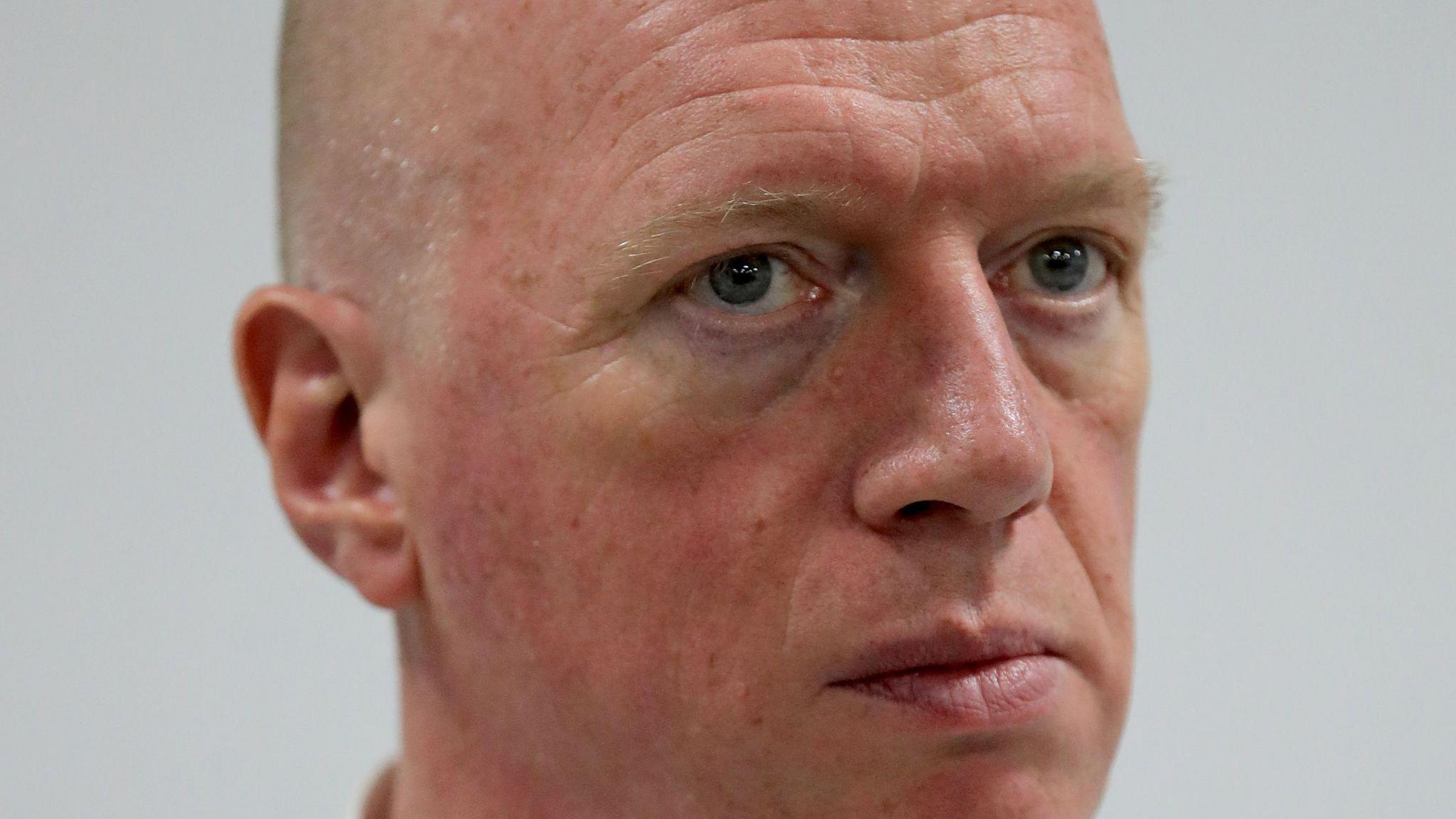Cladding law changes 'too slow' - campaigners

The owners of Skyline Chambers in Manchester were taken to a tribunal by the government under the Building Safety Act.
- Published
Owners of flats in buildings with unsafe cladding and safety defects say they still face "life-changing costs" despite a law designed to protect them.
Housing Secretary Michael Gove said the Building Safety Act 2022 would "bring this scandal to an end".
Residents' campaign coalition End Our Cladding Scandal said the law was "not operating as intended".
The government said the UK had "some of the toughest building safety regulations in the world".
'Investing billions'
A spokesperson from the Department for Levelling Up, Housing and Communities said the Act was a "landmark" law and the government was "investing billions of pounds in safety schemes".
Developers and social landlords were also taking steps to replace unsafe cladding, the spokesman said.
The Building Safety Act, which became law in April 2022 in response to the Grenfell Tower fire in 2017, was designed to make sure most leasehold owners of flats were protected from the costs of replacing dangerous cladding and other fire safety defects.
Before the law came into effect many leaseholders said they were facing bills of tens of thousands of pounds because previous government remediation programmes didn't go far enough.

Giles Grover from End Our Cladding says too few buildings are being made safe
Proposing the law in February 2022, Michael Gove told the House of Commons it was time to "bring this scandal to an end, protect leaseholders and see the industry work together to deliver a solution".
The previous month he said no leaseholder living in a building higher than 11m, around four to six storeys high, "will ever face any costs" for fixing dangerous cladding.
But a report by End Our Cladding, submitted to a House of Lords committee and seen by the BBC, said "it continues to be the case – even with the limited protections brought in by the Building Safety Act – that freeholders and developers continue to delay or try to avoid their liabilities in far too many cases, and that far too many leaseholders continue to face life-changing costs".
Leaseholders who own more than three properties do not usually qualify for support, nor do those whose flats are in buildings less than 11m (36 ft) high.
Manchester-based Giles Grover, co-leader of End Our Cladding, said "the funding isn't always in place for all the safety defects" because of "loopholes", leading to long-running disputes between leaseholders, freeholders, developers and the government.
'Like a pawn'
The government and local councils have used the Building Safety Act to force developers and freeholders into action.
In some cases they have secured orders at tribunals requiring them to take action to remediate cladding and other defects.
Freeholder Wallace Estates was served with an order by a tribunal in January requiring it to undertake remediation work at Centrillion Point in Croydon.
The firm also agreed to remediation orders covering four of its buildings in Greater Manchester, days before a tribunal hearing was due to take place in February.
Josh Morris owned, and lived in, a flat in Skyline Chambers, where the risk of fire was judged "so serious" that all residents were moved out of the building last October.
Josh, who also runs the building's residents association, said he and other residents were "trapped" and unable to sell their flats.
He said he felt like "a pawn on a chess set" in the battle between Wallace Estates and the government.
Wallace Estates has until January 2026 to carry out the work, but is waiting to see if the government will fund part of it.
A spokesperson said "neither Wallace Estates nor the leaseholders are responsible for the fire safety defects at Skyline Chambers".

Josh Morris said he felt like a pawn in a game of chess between developers and the government
'Shockingly slow'
End Our Cladding is a coalition of resident-led cladding campaign groups across England and Wales, as well as Grenfell United, which represents the survivors and bereaved families from the Grenfell Tower fire.
Their report, submitted as part of a consultation over a new law designed to reform the leasehold system, external, said the pace of remediation was "shockingly slow and no stakeholder appears to be acting with any urgency".
Mr Grover said the law had "had a positive impact in terms of resetting the mood music", but he said "the problem still is that not enough buildings are being made safe at the pace the government keeps telling us they are".
Remediation works have been completed on about a fifth of the 3,972 residential buildings that are at least 11m tall and have been identified as having unsafe cladding, according to government data released in February, external.
The figure does not include buildings which have not yet been fully assessed.
The government had previously estimated 6,220 - 8,890 residential apartment blocks between 11m and 18m (59ft) needed remediation work to alleviate external wall fire safety risks.
'Still dangerous'

Fire Brigades Union general secretary Matt Wrack said some buildings are still dangerous
The National Residential Landlords Association, which represents over 100,000 landlords, said the law "fails to take into account the prohibitive costs which face many landlords across the market", adding that the "average landlord" needed support from the government.
A spokesperson for the Residential Freehold Association, which represents a smaller number of the biggest freehold owners of buildings, said the law had "failed to deliver".
"Too many buildings remain unfixed, with stakeholders being forced to spend money and time fighting amongst themselves to apportion blame instead of getting practical help to make the buildings safe as the priority", they said.
Fire Brigades Union general secretary Matt Wrack told the BBC residents were "still being forced to live with dangerous cladding or shoulder astronomical costs".
The Department for Levelling Up, Housing and Communities spokesperson added "we know more needs to done and faster – we continue to work with the local enforcement authorities and have direct contact with those responsible for unsafe buildings”.